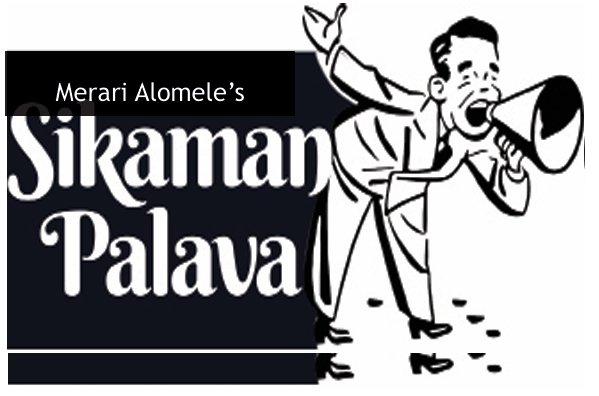Features
Et tu, GJA?

• Membership of the Ghana Journalists Association must be clearly defined
If you read Shakespeare’s *Julius Caesar* then the import of my title will not be lost on you.
My bottom line here is that, but for the food and drinks, many journalists or members of the Ghana Journalists Association (GJA) would have stayed away from the end-of-year dinner graced by the president of the Republic, Nana Akufo-Addo last month.
I make no apology for the above assertion because I have personally been involved in organising media events that saw many journalists falling over for small chops and drinks. And everyone knows this for a fact. But this is not the gravamen of my postulation today.
Some members of the GJA have not been happy with the recent election of the presidency of the Association, with allegations of vote buying, influence peddling and political patronage.
Long before the election, it was rumoured all over the media space that one of the contestants, Albert Kwabena Dwumfour, was a sympathiser of the ruling New Patriotic Party (NPP) and the other two, Gayheart Edem Mensah and Dave Etse Agbenu, who eventually lost, had NDC sympathies.
It thus seemed that the GJA was split into two political camps, an unhealthy phenomenon creeping into a professional body; a body touted as the Fourth Estate of the Realm with a mandate to keep our political leaders on their toes and accountable to the people.
Indeed, the eventual winner is an employee of the Tobinco Group whose Chairman was seen in a viral video canvassing for votes for his employee with monetary inducement. He was actually heard saying if his employee was elected, it would enhance the fortunes of his business.
Dave Agbenu is the Editor of the State-owned Ghanaian Times and Gayheart Mensah is a staff of the Parliamentary Service in the office of the Rt. Hon Speaker. Nowhere was it rumoured that the Parliamentary Service or the NDC campaigned respectively for Gayheart and Dave.
As a businessman, Mr. Tobin is wont to shift allegiance to whichever way the political pendulum swings. It was, however, an immature act by Mr. Tobin to openly involve himself the way he did. Either he is not business savvy or rather naive in matters of mixing business with electoral processes.
Our political parties would be quick to want to influence the choice of leadership of the GJA. They have the right to want to get the media on their side. I have spoken to a few colleagues who confirmed the support the eventual winner received from operatives of the NPP, but they could not say if the NDC did the same for the other two. Some were quick to add that they knew the winner was pro-NDC but might have turned the coat.
If, indeed, he is a turncoat, the signal this sends is the probability to use his position and a launchpad for a future political career. If he harbours such ambition, it will be in his own interest to abort the thought before it consumes him.
One unfortunate perception the NDC, as a political party, has is that the Ghanaian media is in bed with the NPP and so might not be minded to support any candidate even if he is proven to be one of their own. I confess that Dave and Gayheart are my personal friends, thus it was difficult for me to make a choice between them. They both know that I never temper my principles with friendship.
I cannot say I know where Dave stands politically, but one might think Gayheart leans towards the NDC, simply because he supported his big brother’s bid to be the NDC flagbearer in the past. I do not yet know if this is enough proof that he had the support of the NDC. With hindsight of what the party perceives, the NDC would leave Dave and Gayheart to their own devices If, indeed, they were party men. Better still, if they were, the party would have sent a delegation to ask one to step down for the other.
Methinks if our politicians infiltrate our ranks, it is because we have allowed them to. Mention any known journalist and we are quick to tell you what party he belongs to.
Even some senior journalists are party activists, thus bringing objective professional conduct under suspicion. We cannot blame the politicians if they try to influence our elections. Every politician takes advantage of what inures to their benefit, not so?
I have two worries though. First is the monetization of the GJA electoral process. If we have a duty to write and say how dangerous monetization of our national elections have become, whether at congress or general election, and we turn around to do the same within our own processes, what moral right do we have to take our politicians to task for the same thing?
Second is the direction to which the GJA is drifting. The issue of defining who journalist is will not go away yet. The current president of the GJA is not a journalist, though he worked at a media setting. Ghanaians will recall the hoopla that followed the declaration of the late Komla Dumor as Journalist of the Year a couple of decades ago.
Komla, may he continue to rest in peace, was not formally/professionally trained as one, which was the basis for the objections his elevation elicited. I remember in one radio interview, I stated that until we delineated how the GJA was composed, there was nothing wrong with Komla Dumor winning the award. Today, the BBC has immortalised him with a Komla Dumor breakout journalist award across Africa.
By its name, the GJA must be an association of journalists by the descriptive nuances of who a journalist is. If we want to broaden the scope, then the current appellation is nebulous. It should rather be the Ghana Media Association.
This will naturally encompass all those working in the media space; administration, camera persons, sound engineers, producers, lighting persons etc.
Take the Ghana Education Service, for example. It encompasses all manner of employees, but teacher awards are limited only to teachers. There are pupil teachers, graduate teachers in both professional and non-professional categories.
Therefore, there are no qualms about who becomes the winner of the Best Teacher awards.
Therefore, who a journalist is and who qualifies for membership of the professional association must be clearly defined and spelt out. Until this is done, the issue of who is a journalist will come up every once in a while.
Personally, I do not care who heads the Ghana Journalists Association so long as that leader respects and steers the Association away from the path of political patronage. He must ensure that the group is insulated from outside influence and manipulation.
In a number of his books, Tuesday Lopsang Rampa always described journalists as the most evil force on earth. The GJA could fit this description unless it is steered away from licking political boots.
We cannot do our work at the behest of political paymasters. We need to protect our integrity, professionalism and dignity at all times.
Writer’s email address:
akofa45@yahoo.com
By Dr. Akofa K. Segbefia
Features
Political punches and the Blackman

A live boxing showdown between an Arab champion, Saddam Hussein, and the Western ‘Bazooka,’ George Bush, should be the most spectacular event in boxing and political history.
Most probably, Saddam Hussein will rely more on his thick moustache than his ‘chemical’ upper-cuts. Naturally, the dancing kenkeyweight titlist, George Bush, will turn into a southpaw, floating in the ring, jabbing, ducking and targeting Saddam’s moustache to rip it off once and for all.
Such a boxing show would be one of near equals. But consider for a moment a similar show between the Pride of Pretoria, F. W.de Klerk, and the Hope of South Africa, Oliver Tambo.
Although Tambo is not in the very best of health, he is sure to be a diligent pugilist with all the qualities of a BLACK BOMBER. F. W.de Klerk, the stronger of the two is likely to be cautioned several times for hitting below the belt. Fact is that, de Klerk’s punches are never direct. Perhaps his fists need a binoculars to help target Tambo’s nose.
Oliver Tambo had never been a good friend to South African leaders, especially
Pieter Botha. And for quite some time, Botha has had more than a fair share of Tambo’s political punches till his corner men threw in the towel. Still Botha wanted to fight on although they told him that he needed to be replaced by a clerk-de Klerk.
Today, Oliver Tambo is still fighting on behalf of his people. And gradually, the satanic apartheid regime is crumbling, but piecemeal. I bet, de Klerk’s formula for dismantling apartheid that can be likened to a small ant commissioned to eat a mountain of LOAF. Certainly, it would take a thousand years to complete.
This fact is further underscored when we consider that just recently, leaders of the European Community have agreed to scrap the ban on new investments in South Africa. With this decision, South Africa is going to get some breathing space and the process of disentangling its dreaded stranglehold on the black majority is going to be dead-slow.
The German Foreign Minister, Hans Dietrich Genscher, rationalising the community’s decision, said the lifting of the ban would reward de Klerk for legalising the African National Congress (ANC), freeing its deputy leader, Nelson Mandela, and permitting Oliver Tambo to return to South Africa after thirty years in exile.
In reaction to this, the ANC adopted a resolution calling for sanctions to be maintained, with the stand that the EC’s decision which was against ANC interests. Earlier, during an ANC congress, Oliver Tambo had stated that it was time the ANC reviewed its stand on sanctions against South Africa.
“It is no longer enough to repeat the trite slogans …… we should carefully re-evaluate the advisability of insisting on sanctions given the situation domestically and abroad.”
Apparently, the optimism of the black majority of attaining a wish is gradually becoming tantalising if not illusionary.
As it is now, the European Community’s decision is a pointer to the fact that members of the Community regard the South African whites as their first cousins. And obviously, many Europeans directly or indirectly have commercial interests in South Africa. And how can one punish a brother for so long no matter how recalcitrant he proves to be?
Fact is, covertly or overtly, the apartheid regime is being made to perpetuate till doomsday. No one cares for the black man. The whites will come out openly to condemn the racist regime and go indoors to have plans about how best to strengthen this regime.
Worse atrocities have been visited upon the black man. Since history began chronicling world events, the black man has been at the receiving end of all unpleasantries. He is even cited to have descended from a cursed man called Ham, who according to the Bible derided his father’s nakedness. Quite fallaciously, one child of Ham was said to be black (because of the curse), and became the progenitor of the African race.
It is quite uncertain whether orientals like the Chinese also had some share of the curse to make some of them yellow-skinned.
Anyhow, blacks of the world have suffered a lot, having been made slaves, tortured and abused. In the United States where many blacks became domiciled after the slave trade, they were regarded as second rate citizens. To this very day, they are discriminated against when it comes to job opportunities and prospects for promotion.
AMUSING CONCLUSIONS
They are considered brainless and only fun-loving. In a seemingly very crooked research conducted not far back, the following amusing conclusions were arrived at. Chinese students were said to be studious, European children very ambitious and bright and Negro children were said to like partying and music. Adult Negroes were said to be physically strong with large sexual organs but no brains in their heads.
The Blackman’s culture is described as uncivilised and extremely backward. But let’s come to face it. The white man’s culture teaches him to hate others who are not of his colour. You go to Europe and you would be shocked that some whites would not like to sit in the same bus with you.
When they (Europeans) come to Africa, we are not hostile to them although they’ve once enslaved and brutalised us and continue to discriminate against us. We bear them no grudge. Our culture does not breed hatred for other races. It preaches hospitality and respect for all. Which of these two cultures should be placed higher on the scale of civilisation?
In the US, a white supremacist group named the Ku Klux Klan, have a morbid hatred for blacks and have policies geared towards the elimination of the black race. The neo-Nazis do not like blacks either.
History has it that when Jesse Owens won four Olympic gold medals in Berlin, the Nazi warlord, Adolf Hitler, was gravely embittered.
We are discriminated against in sports, the latest being two dubious penalties awarded against the Indomitable Lions of Cameroun in the match against England in the 1990 World Cup in Italy. Cameroun, as a result, failed to reach the semi-final stage. Africans do not deserve a World Cup.
And quite sadly we allow Caucasians and Anglo Saxons to dictate to us which of our women are beautiful and which are not. We accept their criteria for beauty and allow our women to parade semi naked before them, only to be ridiculed as hairless monkeys, and undeserving of beauty awards.
Year after year, we send our women there to experience the same ordeal and we would never learn to stop that nonsense. Are we not encouraging the whites to go on ridiculing our race?
Caucasians, Orientals and Africans have their own considerations when appraising beauty. Why allow Caucasians to superimpose their idea of beauty on ours.
Shall we always be slaves who never stop to think for a while of their independence?
This article was first published on Saturday, December 22, 1990
Features
Is God a Liar?
I believe the first thought that will occur to anyone who reads the topic of this write-up will be what is going on here? Is this author not committing blasphemy? Recent developments on our political front has made this question relevant because of the impact these developments can have on Christianity.
In fact, a respected Christian leader in the country has commented that, Charismatic Christians seem to have decided to embark on a one way journey to self destruction.
He further commented that Charismatics have desecrated noble titles like Apostle, Bishop etc. to the extent that now if you call yourself a Prophet it is synonymous to a con man. Prophets are supposed to speak the mind of God to his people or his church and therefore when a statement is made by a Prophet claiming “thus saith the Lord” people take it whole heartedly as if God was uttering it directly to them.
Again we believe as Christians that God does not lie according to Numbers 23:19 and other references in the bible, and therefore, when a so called Prophet makes an emphatic statement that it is coming from God and a few years later this same God makes another statement contradicting the first one, then it is legitimate to ask the question “Is God a liar”?
People are beginning to lose trust in men of God because of their utterances and actions. You hear of stories of so called men of God committing adultery, stealing, cheating and all kinds of unpleasant behaviour. Unspeakable things that even unbelievers shy away from are being associated with men in white collar.
When elections are approaching, you hear of all manner of prophesies as to which presidential candidate is going to win the elections. Previously, it used to be prophetic declarations on 31st December Night until a certain Dr Dampare issued an order and suddenly God decided to take a holiday each 31st night in my beloved country, Ghana.
The respected Christian leader I mentioned earlier said, he does not believe that God elects leaders especially in our continent and that if he does, given some of the leaders we have had, then we need to have a conversation with him. I fully agree. How can a God of order and discipline, elect lawless people to be leaders who refuse to hand over power contrary to what their constitution states, when their term of office expires?
If I were a member of the fake prophet’s church, I definitely would quit the church because he has proven to be a charlatan. The Bible makes it clear in Mathew 7:20 that the criteria for determining a person’s status as a Christian is by their fruits. Instead of focusing on spreading the Gospel and showing the unsaved the way of salvation, they have turned themselves into favour seekers.
The current places of church auditoriums of some of these pastors were places of businesses as those of us who are privileged to be old enough, vividly recollect. They sing the praises of leaders and their governments, so they would be favoured with prime locations for their church auditoriums among others. These are what the Bible talks about according to Philippians 3:19 that their God is their belly among others.
Instead of seeking Godly wisdom for the revival of these distressed companies, what they were interested in was the place being given to them and they hypocritically turn around and say let us pray for jobs for the youth.
Some of these so called men of God, demand consultation fees before you can see them and I pity the poor souls who visit such places.
God is not a liar. It is against his nature to lie. He is a spirit of truth. It is rather the Devil who is a liar and the father of lies so if you lead a life of lies, as some of these pastors obviously are doing, then according to the Bible, they are fake.
By Lord Kissi-Mensah







